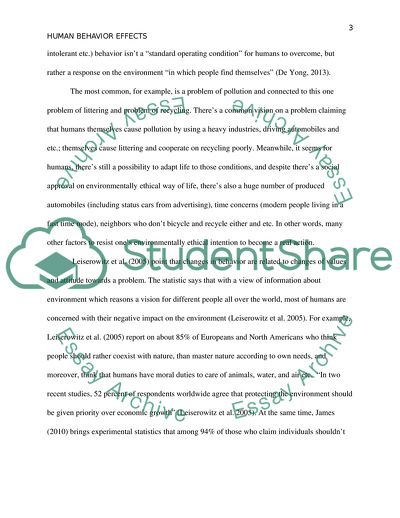Cite this document
(Human Behavior Effects on the Environment: a Struggle for Positive Literature review Example | Topics and Well Written Essays - 1250 words, n.d.)
Human Behavior Effects on the Environment: a Struggle for Positive Literature review Example | Topics and Well Written Essays - 1250 words. https://studentshare.org/psychology/1880949-human-behavior-negative-and-positive-effects-on-the-environment
Human Behavior Effects on the Environment: a Struggle for Positive Literature review Example | Topics and Well Written Essays - 1250 words. https://studentshare.org/psychology/1880949-human-behavior-negative-and-positive-effects-on-the-environment
(Human Behavior Effects on the Environment: A Struggle for Positive Literature Review Example | Topics and Well Written Essays - 1250 Words)
Human Behavior Effects on the Environment: A Struggle for Positive Literature Review Example | Topics and Well Written Essays - 1250 Words. https://studentshare.org/psychology/1880949-human-behavior-negative-and-positive-effects-on-the-environment.
Human Behavior Effects on the Environment: A Struggle for Positive Literature Review Example | Topics and Well Written Essays - 1250 Words. https://studentshare.org/psychology/1880949-human-behavior-negative-and-positive-effects-on-the-environment.
“Human Behavior Effects on the Environment: A Struggle for Positive Literature Review Example | Topics and Well Written Essays - 1250 Words”. https://studentshare.org/psychology/1880949-human-behavior-negative-and-positive-effects-on-the-environment.


